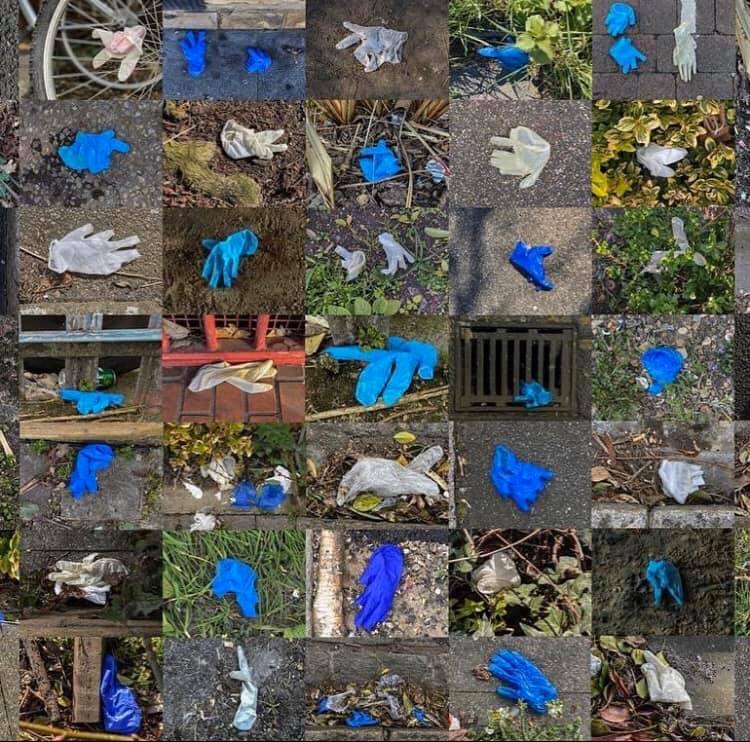Plastic Waste from COVID19 Pandemic is a Novel Threat to Marine Wildlife!
Since the onset of theCOVID-19 global pandemic, there has been an increase in the production of PPE (personal protective equipment) for both our health workers and the public around the world. This has resulted in more gloves, surgical masks and empty plastic bottles of hand sanitiser being dumped carelessly. This subsequent increase of PPE being produced is having a huge impact on the environment and has been dubbed "COVID pollution". Of particular worry is the potential impact that discarded PPE will have on marine wildlife, such as turtles and seabirds, mistaking the brightly coloured latex gloves for food.
COVID-19 plastic gloves discarded and recorded in Open Litter Map.
Across the world, discarded PPE can be found in parks, on footpaths and, in waterways ruining the local environment and putting the native fauna at risk. This discarded PPE is destined for the Earth’s oceans. The efforts of conservation groups are seeing that this impact isn't going un-noticed. Open Litter Map aims to map the world's litter in an effort to encourage people not to carelessly discard their rubbish and to determine litter "hot-spots" to inform government on areas which need the most attention. Open Litter Map which is now installed on over 200 Android Devices have now included face masks and gloves in their sanitary category due to the increase of these now everyday items being littered across the world.
" These maps can change peoples behaviour and the open data can help us improve policy target " - says Sean Lynch, Founder of Open Litter Map.
How to report plastic gloves to Open Litter Map.
OceansAsia
has recorded a finding of 100 surgical masks washed up on the uninhabited Soko Islands off the coast of Hong Kong over the course of only three beach visits to date. This is just one of many examples of the environmental damage from not disposing the protective equipment waste caused by this pandemic properly.
According to the CEO of the Plastic Pollution Coalition, Dianna Cohen, there has been more than 8.3 billion metric tons of plastic produced globally in the last 70 years. This is an extremely worrying figure when it comes to the conservation and the protection of marine wildlife. A study published by the World Economic Forum found that 8 million metric tons of plastic enters the ocean every year. In the space of time that all of this has been happening, more and more PPE waste is being dumped illegally every day.
This is should be an eye opener for people everywhere! Personal protective equipment should be disposed of correctly to help prevent pollution, injuries to marine mammals and other marine wildlife, and for the benefit of human health. Used personal protective equipment should be bagged and placed in the recycling bin as soon as being finished with.
© Ocean Research & Conservation Ireland (O.R.C.Ireland) and www.orcireland.ie , est. 2017. If you like our blogs on the latest news in marine science and would like to support our work, visit www.orcireland.ie to become a member, to volunteer or to make a donation today. This article has been composed based on credible sources.
References:
https://www.independent.co.uk/news/coronavirus-masks-gloves-oceans-pollution-waste-a9469471.html
https://www.dw.com/en/coronavirus-plastic-waste-polluting-the-environment/a-53216807
oceansasia.org/beach-mask-coronavirus/
https://abcnews.go.com/Technology/world-ocean-day-2019-oceans-plastics-problem/story?id=63324490
SHARE THIS ARTICLE















